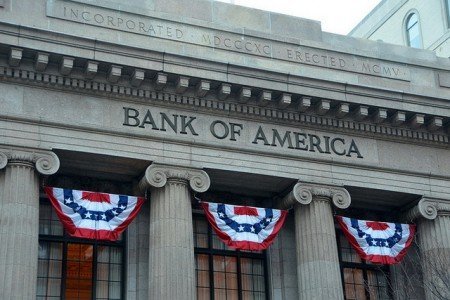One of the largest banks in the USA has already filed for 15 patents and have 20 new ones in turn.
The interest of banks in the blockchain is quite expected now. While multiple institutions start projects aimed at adopting the distributed ledger to financial services, Bank of America goes further and strives to get patents for some use cases of the blockchain.
“Blockchain is very intriguing and for us it’s a balance between not wanting to be Neanderthal but not wanting to put something out in a commercial application where the commercial application is still very unclear as a technologist, the technology is fascinating,” says Catherine Bessant, the chief operations and technology office at Bank of America.
Bank of America, that was named the third biggest company in the world in 2010 according to Forbes, has already filed for 15 blockchain-related patents and another 20 patents are next in turn. They will be submitted to the U.S. Patents and Trademark Office (USPTO) in the near future.
Bank of America aims to stay on the forefront closely examining modern technologies that are believed to transform the traditional system. “Most people would be surprised at Bank of America with patents in the blockchain or cryptocurrency space. (It’s) very important in the intellectual property world to reserve our spot even before we know what the commercial application might be.”
Even 10 patents filed in December 2015 testify that Bank of America is planning to offer a more diverse fully-customized cryptocurrency system. The patents were:
- Cryptocurrency Offline Vault Storage System
- Cryptocurrency Transformation System
- Cryptocurrency Transaction Validation System
- Cryptocurrency Electronic Payment System
- Cryptocurrency Suspicious User Alert System
- Cryptocurrency Aggregation System
- Cryptocurrency Online Vault Storage System
- Cryptocurrency Transaction Payment System
- Cryptocurrency Real-Time Conversion System
In September 2015 Bank of America joined R3 blockchain project designed to develop and apply distributed ledger technologies to global financial markets. The consortium was launched to collaborate on research, experimentation, design, and engineering to help advance state-of-the-art enterprise-scale shared ledger solutions to meet banking requirements for security, reliability, performance, scalability, and audit.
Indeed, Bank of America is far from being the only one convinced that blockchain can significantly improve traditional payment system and accelerate settlement process, not to mention possible spending reduction.
According to the research company Aite Group, banks will spend about $400 million on the blockchain by 2019. Financial firms have invested $75 million into the technology in 2015, which is twice the sum they invested in 2014.
“Bitcoin has been the most visible application of the blockchain, but it and other cryptocurrencies are a tiny fraction of the technology’s potential applications,” says Ben Knieff, senior analyst on the Retail Banking & Payments team. “Many technical details and variations signify different implementations, all of which could mean potentially disruptive applications for these technologies.”
next